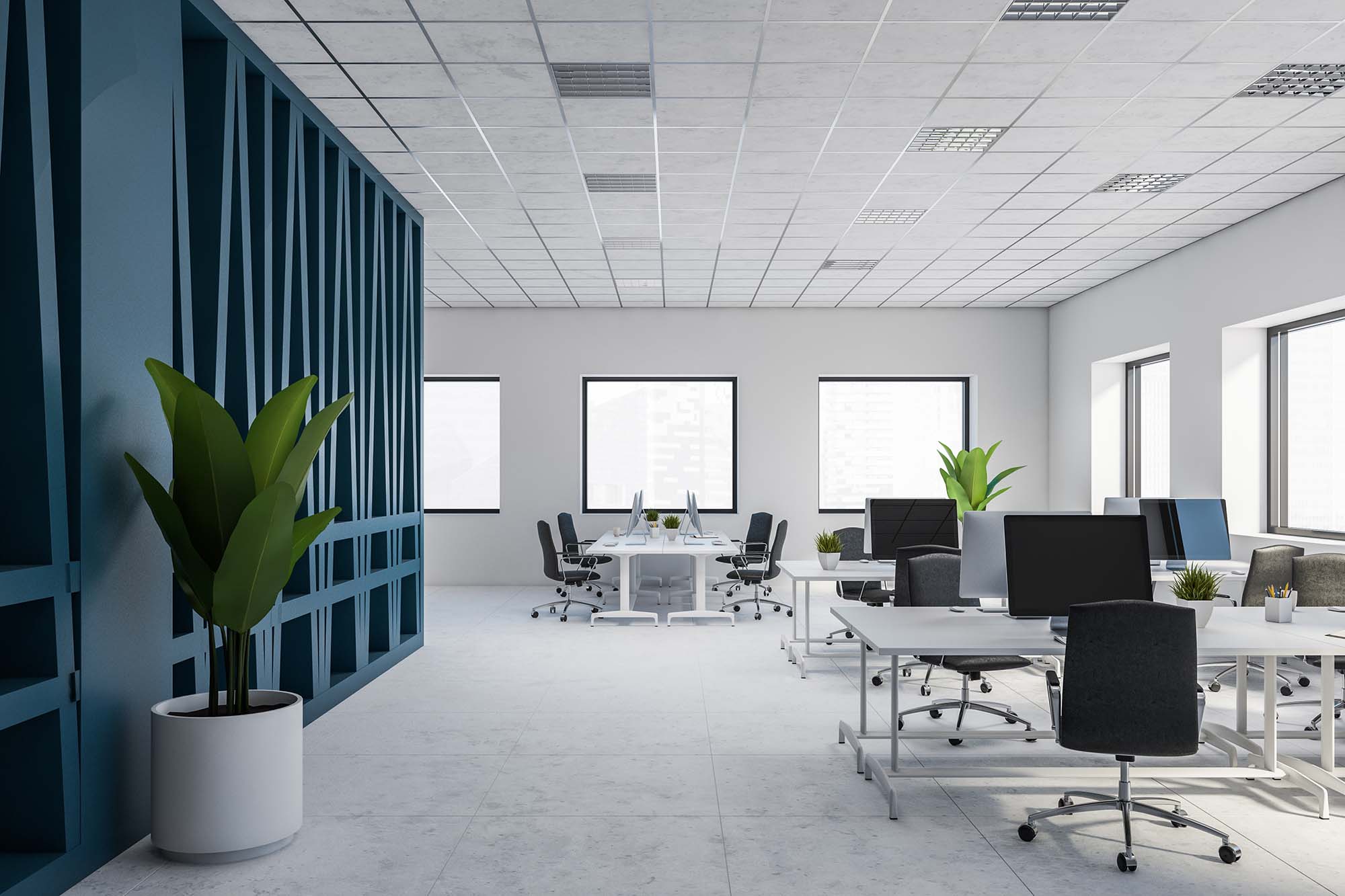When choosing the perfect floor for your office, it's important to consider several factors that align with your office's specific needs and requirements. Here are some key considerations:
1. Functionality and Usage: Assess the primary function and usage of your office space. Consider factors such as foot traffic, the presence of heavy furniture or equipment, and the likelihood of spills or stains. For high-traffic areas, durable and easy-to-clean options like vinyl, laminate, or commercial carpet tiles may be suitable.
2. Professional Aesthetics: Choose a flooring material that aligns with the professional aesthetics of your office and enhances the overall ambiance. Consider the design, color, and texture of the flooring in relation to your office's style and branding. Options like hardwood, engineered wood, or luxury vinyl tiles can provide a sophisticated and professional appearance.
3. Acoustics: Depending on your office layout and the need for noise reduction, consider the acoustic properties of different flooring materials. Carpet or carpet tiles, for example, can absorb sound and reduce echo, creating a quieter working environment.
4. Maintenance and Durability: Assess the level of maintenance you can commit to and the durability required for your office. Offices with high foot traffic or areas prone to spills and stains may benefit from flooring options that are easy to clean and maintain, such as vinyl, tile, or laminate. Additionally, consider the longevity and resistance to wear and tear of the flooring material to minimize the need for frequent replacements.
5. Comfort and Ergonomics: Take into account the comfort and ergonomics of the flooring, especially if employees spend long hours standing or walking. Materials like cork or rubber can provide cushioning and support, reducing fatigue and strain on the feet and legs.
6. Safety and Accessibility: Ensure the flooring you choose meets safety standards and is suitable for everyone in your office, including individuals with mobility challenges. Consider slip resistance, wheelchair accessibility, and compliance with regulations such as the Americans with Disabilities Act (ADA) if applicable.
7. Budget and Long-Term Value: Determine your budget for the flooring project and balance it with the desired quality and longevity. While higher-quality materials like hardwood or natural stone may be more expensive upfront, they can offer long-term value and enhance the overall aesthetic appeal of your office.
8. Environmental Considerations: If environmental sustainability is important to your office, explore flooring options that are eco-friendly. Look for materials that are made from renewable resources, recycled content, or have low VOC emissions.
By considering these factors and assessing the specific requirements of your office space, you can choose a flooring option that combines functionality, aesthetics, durability, and comfort to create a productive and visually appealing work environment.

-
3 mins







